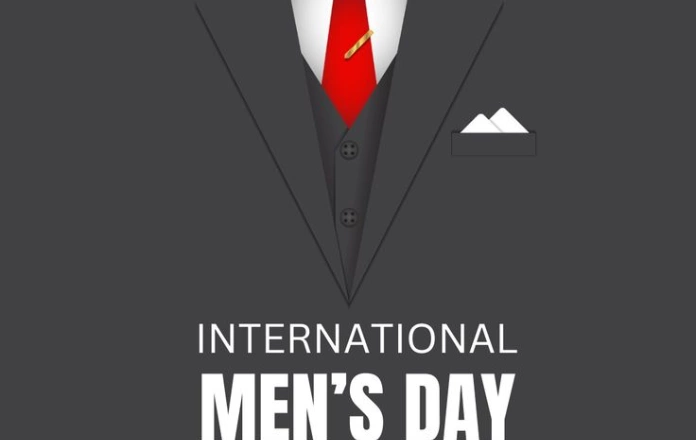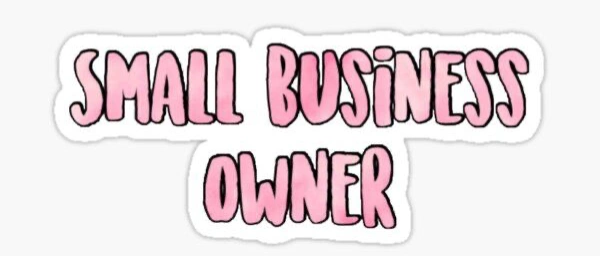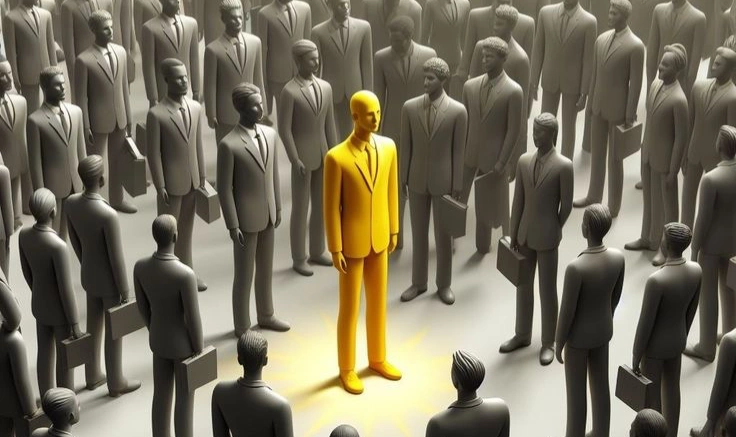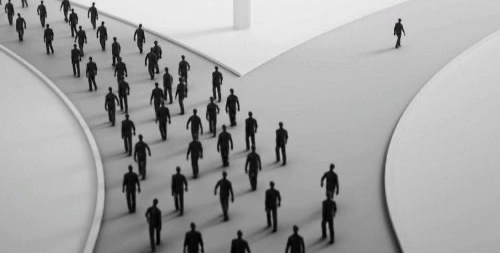Entrepreneurship Posts on Crowch
Every year on November 19, many countries around the world observe International Men’s Day. This holiday is not only about recognizing men’s achievements but also about highlighting their role in society, in families, and in shaping future generations.
🌍 History of the holiday
The idea of International Men’s Day emerged in the 1990s. It was founded by Dr. Jerome Teelucksingh from Trinidad and Tobago, who dedicated the date to the memory of his father — a man who embodied responsibility, honesty, and care. Since then, the celebration has spread across the globe and is now supported in dozens of countries.
💪 Values and goals
International Men’s Day addresses important issues:
- improving the health of men and boys,
- promoting positive male role models,
- fostering gender equality and mutual respect,
- highlighting fatherhood and men’s role in families,
- building a culture of support rather than competition.
The holiday reminds us that true strength lies not only in endurance but also in responsibility, care, and integrity.

👨👩👧👦 Men in family and society
Today, men are recognized not only as providers or protectors but also as partners, fathers, and friends. Emotional maturity, empathy, and the ability to communicate openly are valued qualities. International Men’s Day challenges stereotypes and inspires a vision of a more balanced and supportive society.
🩺 Focus on health

One of the core missions of the day is raising awareness about men’s health. Men are less likely to visit doctors, which often leads to late diagnoses. The holiday encourages attention to both physical and mental health, reminding men that self-care is vital.
🌟 Modern meaning
International Men’s Day is a chance to say “thank you” to the fathers, brothers, husbands, friends, and colleagues in our lives. It is a day of recognition but also a day for open conversation about the challenges men face.
✨ International Men’s Day is more than just a holiday — it is an important step toward creating a fairer, kinder, and healthier world for everyone.
In recent years, the world has come to recognize the value of local initiatives. Small Business Saturday, held on the last Saturday of November, has become a symbol of this awareness. On this day, millions of people across different countries choose small shops, cozy cafés, and creative workshops instead of large retail chains, turning the day into a true celebration of entrepreneurship.
🛒 More than shopping
Small Business Saturday is not about discounts or chasing deals. It’s about choosing quality, uniqueness, and a human touch. Every purchase at a small business is a gesture of support, recognition, and respect for the work of those who enrich our communities.

🌱 Small businesses = big change
Each entrepreneur contributes to the growth of their city or neighborhood. Small businesses give character to streets, create jobs, and strengthen local economies. Money spent locally often stays in the community — supporting schools, cultural projects, and charitable initiatives.
❤️ The human connection
The magic of small businesses lies in their atmosphere of trust and warmth. Owners and staff know their customers, remember their preferences, and greet them with genuine care. It’s a personal touch that big retail chains can never replicate.
🙌 How can we take part?

- Shop at a local store or market.
- Support a workshop or creative space.
- Share your favorite café or shop with friends.
- Promote small businesses on social media.
These small actions give entrepreneurs confidence and motivation to keep moving forward.
✨ A celebration of hope
Small Business Saturday reminds us that behind every storefront is a person, their dream, and their hard work. By supporting small businesses, we choose a world that values individuality, care, and community.
Small Business Saturday is a celebration of a future where success is measured not by size, but by heart.
Small Business Saturday is celebrated each year on the last Saturday of November, right after Black Friday. First launched in the United States in 2010, it was created as an alternative to big retail sales and as a reminder of the importance of local shops, family-owned businesses, and independent entrepreneurs. These businesses form the backbone of the economy and add character to our neighborhoods.
🌍 Why does it matter?
Small businesses are more than just stores. They are bakeries, coffee shops, bookstores, ateliers, craft workshops, and family restaurants — places that bring warmth and individuality to our daily lives. They create jobs, support communities, and preserve traditions. By shopping local, we are investing in our neighbors, our friends, and the future of our cities.
📈 Impact on the economy
Research shows that every purchase at a small business has a multiplier effect: money stays in the community and helps it grow. Unlike large corporations, local entrepreneurs often source from nearby producers, reinvest profits into the community, and provide a personal touch that makes shopping a unique experience.

💡 How can we help?
Supporting small business is easier than you think:
- Buy holiday gifts from local shops.
- Choose neighborhood cafés and restaurants.
- Share your favorite spots with friends or leave online reviews.
- Promote local brands by sharing their posts on social media.
Even a small purchase can make a big difference.
❤️ A day of gratitude

Small Business Saturday is more than just a shopping day — it is a day to say thank you. It is a chance to appreciate the hard work, creativity, and dedication of those who run their own businesses to make our communities vibrant and diverse.
When we support small businesses, we support the beating heart of our communities.
Small Business Saturday began as a local initiative, but today it is becoming a symbol of conscious consumption and sustainable development. In an era of globalization and digitalization, small businesses remain the backbone of the economy and guardians of cultural diversity.
Digital presence
In the past, local shops relied on physical storefronts and street displays, but now they are actively moving online. Social media, marketplaces, and personal websites help entrepreneurs reach customers not only in their neighborhoods but also across the globe. Small Business Saturday highlights that even in the digital age, people still value personal service and uniqueness.
A new generation of consumers
Millennials and Generation Z increasingly focus not only on price but also on the values of the businesses they support. For them, it matters that a company is eco-friendly, transparent, and socially responsible. Small businesses are often closer to these ideals: they use local products, support traditional crafts, and develop green initiatives.
The ecological aspect

Modern consumers are becoming more aware of the environmental footprint of large corporations. Small businesses can offer alternatives: handmade goods, recycled materials, and local products that require less transportation. Small Business Saturday thus becomes not just a shopping day but also a reminder of the importance of sustainability.
Communities and collaborations
Small businesses often collaborate instead of competing, creating joint projects and campaigns. This cooperation strengthens local communities. Cities host fairs, festivals, and workshops where customers can meet entrepreneurs face-to-face and experience the atmosphere of real human connection.
A global future
Although Small Business Saturday originated in the United States, its philosophy resonates worldwide. Supporting local entrepreneurs helps preserve the uniqueness of towns and villages, reduces dependence on global corporations, and makes economies more resilient.

Conclusion
Small Business Saturday is not just a marketing campaign. It is a movement that fosters a culture of conscious choice, supports sustainability, and preserves human values. In the future, as digital technologies dominate, small businesses will continue to remind us that commerce is, above all, about people and their stories.
Small Business Saturday is more than just a shopping day. It is a symbol of supporting local entrepreneurs, showing how small businesses shape the identity of cities and foster trust within communities.
Small business as part of identity
Every city or neighborhood has its own unique shops, cafés, and workshops. These are what distinguish local communities from anonymous malls and chain stores. A corner bookstore, a family-owned bakery, or a handmade craft studio make the streets lively and full of stories. Small Business Saturday reminds people of the importance of such places and encourages them to support them.
Economic and social impact
Buying from local entrepreneurs not only stimulates the economy but also invests in the development of one’s own environment. Money stays within the community: small business owners employ local residents, work with regional suppliers, and participate in civic initiatives. This creates a “circle of support” that strengthens the overall resilience of the economy.

Personal connections and trust
Small business is not just about goods and services — it is about relationships. Customers know the owners by name, and sellers understand the tastes and habits of their clients. This closeness creates a level of trust that big chain stores cannot match. Small Business Saturday emphasizes that every purchase is also a step toward strengthening human connections.
The role of social media
In the digital era, the internet helps small businesses become more visible. During Small Business Saturday, entrepreneurs actively use social media to showcase their products, share their stories, and find new customers. The hashtag #ShopSmall has turned into a global symbol of solidarity and support.

A global context
Although Small Business Saturday originated in the United States, its idea resonates worldwide. Many countries are developing similar initiatives, because supporting small businesses is a universal value. In a world of globalization and corporate dominance, local shops remind us of diversity and cultural heritage.
Conclusion
Small Business Saturday is a day when buying from a small shop becomes an act of support, and visiting a local café turns into an investment in the community’s growth. This holiday demonstrates that the economy is not just about numbers and discounts, but also about people, their dreams, and their efforts. By supporting small businesses, we preserve the uniqueness of our towns and strengthen human connections.
Small Business Saturday is an annual event in the United States held on the Saturday after Thanksgiving. It was created as an alternative to the massive shopping days of Black Friday and Cyber Monday, aiming to draw attention to small businesses that are often overshadowed by large corporations and online giants.
Origins
The initiative began in 2010, launched by American Express. Its goal was simple: to remind consumers that local shops, cafés, bookstores, and workshops are an essential part of communities. From the start, the campaign gained support from government institutions, city authorities, and community organizations. In 2011, the President of the United States officially recognized Small Business Saturday as an important event for the economy.
Purpose and idea
Unlike Black Friday, which emphasizes global brands and mass discounts, Small Business Saturday highlights the value of shopping with local entrepreneurs. When people buy from small shops or use local services, they directly support their neighbors, create jobs, and strengthen the regional economy.

The slogan of the campaign is simple: “Shop Small.” This movement encourages people to make conscious choices and remember that every purchase supports a real person, not a faceless corporation.
Importance for society
Small businesses are the backbone of any economy. They include artisans, family-owned restaurants, local producers, artists, and farmers. Their work brings diversity to goods and services, and it shapes the unique character of every neighborhood and city.
By supporting small companies, consumers help preserve cultural and social diversity. Studies also show that money spent in local stores is more likely to stay within the community, as small business owners often use local suppliers and hire local workers.
Modern trends

Today, Small Business Saturday has grown into a nationwide movement. Across the country, festivals, fairs, workshops, and special promotions are held. Many cities create online directories of local entrepreneurs, making it easier for shoppers to find and support them.
Thanks to social media, the campaign has gained international recognition. Under hashtags like #ShopSmall and #SmallBusinessSaturday, people share photos of purchases, tell stories about their favorite shops, and build a community of support.
Conclusion
Small Business Saturday is more than just a shopping day. It is a reminder that behind every small shop stands a person with a dream, a family, or a team of dedicated people. By supporting small businesses, we invest not only in products and services but also in the people who create the atmosphere of our towns and drive the economy forward.

💥 Is It All or Nothing?
Is making sustainability affordable under capitalism truly impossible? Or are we just not looking hard enough at the problem — or more importantly, at the opportunities?
Architect and sustainability advocate Smith Mordak recently raised this challenge in a thought-provoking piece, suggesting that truly ethical, sustainable, and affordable products simply cannot exist under capitalism. Mordak’s argument is rooted in a fictional — yet painfully realistic — story: an entrepreneur begins with a bold vision for a sustainable chair made from ethical materials and fair labor. But as scale increases and cost pressure mounts, the vision crumbles. Cheaper, less sustainable materials are introduced. The price goes down — and so does the mission.
Mordak concludes that capitalism itself is the culprit. It’s not just a product design issue — it’s a system design failure. The proposed solution? Rethink the entire economy: implement universal basic income, embrace alternative currencies, enable co-living models, and challenge traditional value exchange.

🧠 But Do We Have to Abandon the System?
The core question remains: Must we dismantle capitalism to achieve sustainability and affordability? The answer, especially for designers and innovators, is not so black and white. While we shouldn’t ignore the deep-rooted issues in current systems, we also can’t afford to tell the next generation of creators that the only way to act is to wait for a new economy to emerge. In fact, framing sustainability as always more expensive can discourage innovation. It boxes in designers, making them believe their only option is to create expensive, niche, eco-friendly products for wealthy customers. It limits the very kind of creative thinking needed to hack the system from the inside.

👟 Sustainability Can Be Affordable — Real-World Proof
Some brands are already proving that sustainability and affordability can coexist. Veja, the sneaker brand, is a prime example. Despite using ethically sourced materials and paying fair wages, Veja keeps prices competitive with major mainstream brands.
How? Two bold choices:
1. Zero advertising — freeing up funds typically spent on marketing.
2. Slow growth — scaling sustainably instead of chasing fast profits.
This mindset flips the typical business model, reallocating resources from brand noise to product integrity. It’s business model innovation — not utopian dreaming — that creates new possibilities. Pandora, the world’s largest jewelry company, made a similar move by switching to 100% recycled metals. Despite a $10 million cost increase, it didn’t raise prices, choosing instead to cut internal inefficiencies. These are the real-world hacks that Mordak’s argument overlooks.

🧃 Packaging, Food Waste, and Closet Apps — More Affordable Innovation
Across industries, we’re seeing other creative ways to make sustainability accessible:
• Refillable packaging: Supermarkets like Ocado and M&S offer discounts for reusable packaging — a win-win for both customers and the planet.
• Too Good to Go: This app rescues food from going to waste while helping people eat affordably.
• Digital wardrobe apps: These tools help users “shop their closet,” extending the life of clothing and reducing overconsumption.
• Beni: A free browser extension that helps people buy secondhand more easily, promoting reuse without added costs.
All of these examples show that smart design, when aligned with new digital tools and values-driven strategy, can stretch the boundaries of what’s possible — even under capitalism.
🛠 Hacking the System Starts with Mindset
Designers are more than stylists — they are systems thinkers. And while systemic transformation is essential, we shouldn’t treat today’s economy as completely immovable.
Designers should approach their work with a “system hacker” mindset, as described by von Busch and Palmas — modifying the rules, bending limitations, and finding unexpected methods to turn capitalism’s weaknesses into design opportunities. Think of it as ethical jiu-jitsu — using the system’s own force to redirect its energy.
By zooming out to see the larger economic and social context — and then zooming in to innovate at the business model level — designers can ask better questions, spot leverage points, and develop strategies that don’t just rely on higher prices as the only measure of sustainability.
Being a leader isn’t about being first. It’s about being the one who acts first. The one who invests energy when no one else believes. The one who sees potential when others see only problems. The one who listens when it would be easier to command. The one who sets the pace before it becomes comfortable. Leadership isn’t about control — it’s about moving forward, even when the path is unclear.
Today’s world no longer responds to authoritarian leadership. People don’t want bosses — they want partners they can grow with. A modern leader isn’t the top of a hierarchy, but a point of strength. They don’t assert authority — they help others find their own. They don’t say, “I know how,” but instead ask, “How would you do it?” They’re not afraid of different perspectives, because they understand that diversity is a resource, not a threat.
One of the key signs of real leadership is the ability to create an environment for growth. Not just assigning tasks, but supporting the process. Not just demanding results, but helping people get there. Leadership isn’t only about outcomes — it’s about evolution. When the people around you start to think bolder, speak more honestly, and believe in themselves more — that’s when you’re not just managing, you’re truly leading. And that’s the essence of leadership.
A strong leader isn’t afraid to take a step back so that someone else can step forward. They don’t compete with the team — they create conditions where the team grows stronger than the leader. That’s true maturity. A leader knows their goal isn’t to be indispensable, but to build something that thrives without constant control. Their role is not to be needed — but to build resilience.

A true leader thinks horizontally. They don’t just look at short-term wins, but long-term consequences — one, three, even ten years ahead. They think in meaning, not just metrics. They understand that quick wins are useful, but direction matters more. They ask hard questions and are comfortable waiting for the real answers.
Another vital leadership trait is the ability to slow down. In a world obsessed with speed and multitasking, pausing can be a superpower. Holding inner stillness while everything outside is in chaos — that’s rare and deeply valuable. And it’s from this inner calm that real decisions emerge.
A leader is not a hero. They are the person who chooses to carry more than they have to. It’s not always about success — often, it’s about resilience. The ability to keep going when no one is watching. Staying loyal to themselves and to others, even when it’s hard. Showing up every day with a quiet “I’m here,” when it would be easier to step aside.

These are the leaders who shift the energy in teams, projects, and lives. Not because they tell others what’s right — but because they show what’s possible.
Leadership isn’t about loud speeches, fancy titles, or rigid control. True leadership is about influence, trust, self-awareness, and the ability to inspire — not by order, but by example.
In today’s fast-changing world, the old image of the all-knowing, authoritarian leader no longer works. What matters now is the ability to listen, to adapt, to admit mistakes, and to show vulnerability. Because real strength doesn’t come from wearing a mask — it comes from being honest.
A leader is not the person who does everything alone. A true leader creates space for others to grow. They don’t compete — they connect. They don’t drag the team behind them — they empower it to move forward. A modern leader sets not just the pace, but the purpose.
Modern leadership is about:

- Empathy. To understand, feel, and support.
- Transparency. To speak honestly, even when the truth is difficult.
- Flexibility. To seek not the perfect solution, but the one that fits here and now.
- Respect. For time, experience, individuality.
A leader knows how to manage not only tasks, but also energy — their own and their team’s. They sense when to push and when to pause. They ask, “What do you need?” — and they actually listen to the answer.
A true leader serves before they lead. They build trust through consistent actions, not grand promises. They’re not afraid to say, “I don’t know,” because they understand that real confidence is not about knowing everything — it’s about being open to learning.

It’s important to remember: leadership is not a position. It’s a role you choose to take on every day. At any level. In any setting. In every conversation, decision, and reaction.
Sometimes, a leader is the person who offers support at the right moment. Who creates a safe space for ideas. Who says, “Let’s try,” instead of, “That’s not how we do it.”These small moments shape culture, trust, and real teamwork.
In a world where technology evolves faster than people can adapt, human-centered leadership has never been more essential.
A true leader isn’t the one who stands ahead of everyone else. They’re the one who stands beside you — helping you believe that you can move forward too.
When we think of leaders, we often imagine strength, confidence, and decisiveness. But today, the most powerful leaders are those who embody something deeper: the ability to listen, to be vulnerable, to admit mistakes, and to create space where others feel safe to grow.
A true leader doesn’t always need to be right. They’re willing to change their mind. They don’t command respect — they earn it. They don’t speak first — they ask better questions.

In reality, leadership shows up in the smallest daily moments: choosing kindness when you’re tired, letting someone else lead even if you could do it faster, giving credit instead of taking it.

Leadership isn’t about being on top. It’s about supporting those around you. It’s about creating culture, holding space, and making sure people feel seen, valued, and trusted.
We often imagine leadership as the peak of the mountain. But in truth, it’s the foundation — the steady ground that holds everything together: the team, the vision, the momentum.
Real leadership is the pause before the answer, the stillness before the choice, the eye contact when someone’s made a mistake. It’s the honesty when silence would be easier. It’s the care you give even when no one asks for it.